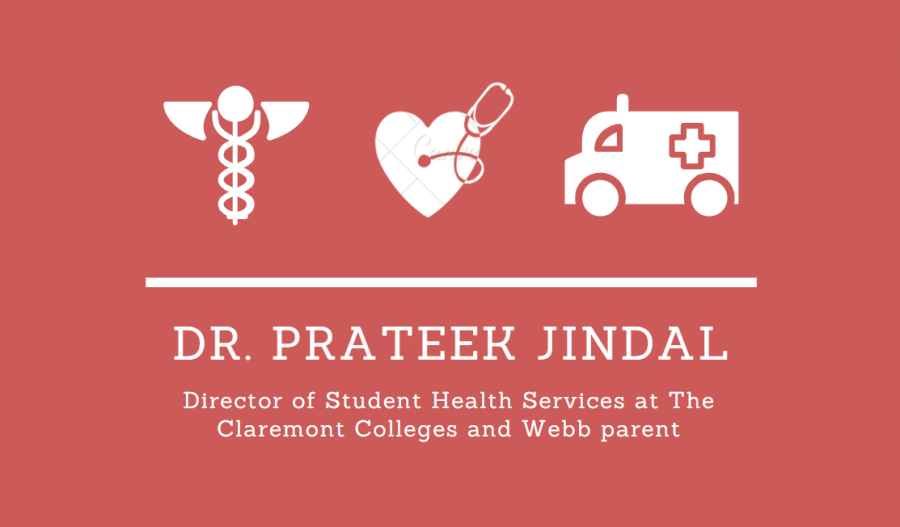In an interview, Dr. Prateek Jindal, Director of Student Health Services at The Claremont Colleges and Webb parent, shares with The Webb Canyon Chronicle insights on the COVID-19 booster, the virus, and his experience serving on Webb’s medical advisory board as a Webb parent.
Dr. Prateek Jindal, Director of Student Health Services at The Claremont Colleges and Webb parent
Questions about boosters:
Question: What exactly does the booster shot do? Is it possible for fully boosted people to still get COVID?
Dr. Jindal: The booster shots help “boost” your immune system’s preparedness to fight off a particular infection. They are usually given when we expect the body’s immunity against the infection has diminished. However, booster shots are not a new concept. For example, tetanus shot boosters every ten years have been a standard recommendation for quite some time.
Yes, fully boosted people can still get COVID. Vaccines cannot prevent an infection from entering the body. For example, if someone with COVID coughs near me, the vaccine/booster will not prevent those COVID particles from entering my nose. However, vaccines and boosters do ensure that our immune system is ready to fight off the infection and prevent it from taking hold.
Question: Can those who got COVID get the booster after?
Dr. Jindal: Yes, public health officials have indicated that you can receive COVID-19 vaccination after you have recovered from a COVID-19 infection and met the criteria for release from isolation. Those who have had a previous COVID infection and that will get a COVID-19 vaccine have much better and broader immune responses than those who do not get vaccinated and rely solely on their natural immunity from the infection.
Question: How do COVID rules apply to those who recovered from it recently? Do they follow the same testing protocols?
Dr. Jindal: Those who have recovered from a COVID infection recently are generally exempted from further routine, asymptomatic screening testing for some period of time. However, if after a complete recovery, someone develops symptoms consistent with COVID-19, they may be asked to test again by their medical provider to determine if they have been re-infected. Recently, we saw this with the Omicron variant where an infection from a previous variant (e.g., Delta) was not protective against an Omicron infection.
Questions about the COVID virus:
Question: Is it possible to determine which variant you have caught?
Dr. Jindal: Yes, it is possible to determine which variant is causing infection. This is done through a process known as genetic sequencing. However, this is not something that is as commonly done as we would like. When it is done, it takes time (sometimes up to two or more weeks) to perform, and the result is not usually reported back to the individual. Results are generally provided to public health officials as part of data they are constantly monitoring.
Question: Does being a Webb parent change your role on the medical board? How?
Dr. Jindal: Being a current Webb parent better helps me connect with the Webb community. I find it rewarding to be able to help give back in a meaningful way.
